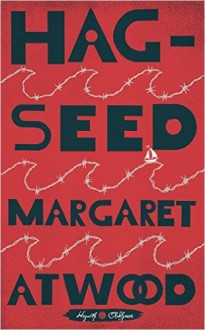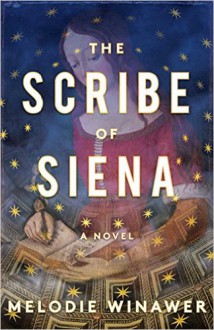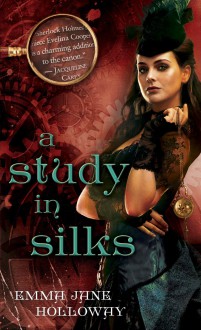
Bridget's Book Ramblings for my thoughts (2.75/5)

Bridget's Book Ramblings for my thoughts (2.75/5)

I'm determined to declutter (and clean). Partly because I want more shelf space.
So the Pop Sugar 30-day Cleanng Challenge caught my eye. Right up until I was reading the checklist PDF that started out as "okay, doable in a few minutes a day" came to Day 14.
Day 14 oddly thinks I can organize and declutter closets and drawers in under an hour. *Snort* I have bookshelves and tubs of books in my closet as well as my clothes and expected closet stuff ( it's a walkin).

I may still try it -- but the organize and declutter steps won't be in their 20-60 minute time frame.

I should have read The Tempest ahead of this, but I was over-eager in my excitement at getting my greedy little paws on a copy of Margaret Atwood's Hag-Seed. It worked out in the end, though, because she so kindly explained the basic plot of The Tempest at the end of the book, which helped clear up some of my questions.
Hag-Seed starts off a bit slow, with the betrayal and then multiple chapters of Felix sinking into delusions of the daughter he lost living with him. That is why this book, which I actually really loved, is a 4-star read and not 4.5 or 5. After 75 pages, I was actually thinking I might DNF this one, which is a very, very rare occurrence for me as I am stubborn and unable to let go of books once I start reading them.
Then I decided on a whim to push on, anyway.
Boy am I glad that I did. I recognized many of the basic elements of a good revenge plot as I read and, as Felix helped his prisoners, and thus the reader, get more familiar with the story of The Tempest, I slowly began to pick up on the lines Atwood had drawn between her characters and Shakespeare's.
Of course, the end result of a modern take on an old story is that the basic character, plot, and world development have been done, they just need embellishing and cleaning up a bit. We'll call that the gold paint on the cloak, for those who get the reference. This, I think, Atwood did very well. I felt bad for Felix, certainly, after what was done to him in the name of getting ahead, but also felt his madness just as Prospero in The Tempest was also a bit mad, and even questioned if he had gone too far at times. I think my favorite was 8Handz, though, for reasons I don't want to list here because it would give away too much of the story.
Overall, if you're a fan of retellings and/or Shakespeare, I would say to give this one a go. General Margaret Atwood fans may be a bit more split.

The fun thing about historical fiction is that ambiguity and uncertainty inherent in certain time periods leave a lot of room for play. That leads to stories like The Scribe of Siena, about a neurosurgeon in New York who travels to Siena, Italy to continue her recently deceased brother's research. From there, she winds up on the trail of a possible conspiracy leading to the fall of the city, assuming she can survive long enough to share what she has learned.
I want to say upfront that the half star was docked from this book's score solely because of the length of some of the chapters. One was 43 pages and I am not a fan of chapters exceeding 15 pages in length. As you can likely see by the number of books I have going at any one point in time, I've got a bit of reading ADD.
That said, this book has FAR more strengths than weaknesses. Chief among them is Winawer's attention to detail, which feeds into and strengthens the narrative of the story. The world she creates in mid-14th Century Siena is rich and deeply imagined, coming to vivid life in my mind as I read. I don't remember the last book that was this effortless for me to imagine how things looked, felt, and smelled. As an example, I had never seen pictures of the Ospedale before, yet the other day I googled it out of curiosity and it was identical to what I had pictured as I read the book, down to the set-up of the other buildings and streets around it.
That takes a special level of skill and Melodie Winawer has got it.
Beatrice, our main character on this historical romantic adventure, was another relatively strong point. While she maybe could have been a little more flawed, it wasn't particularly necessary in this case due to the inherent flaws that came with a 21st Century woman being transported to 1347 and required to figure out how to function in a new, but old, society.
Overall, I very highly recommend this book and actually intend to buy a hard copy myself. I may even spring for a hard cover, and I save those for special cases.

This, the first book of the Baskerville Affair, is a solid start to a trilogy that will appeal strongly to any who count themselves fans of Sherlock Holmes, so long as they don't mind a bit of magic alongside their mayhem.
While it wasn't a perfect book, with a complex and sometimes difficult-to-follow plot floating between multiple characters' points of view, I did find it highly intriguing and have to wonder if I read the same book as those who claim nobody cared about the murder 200 pages in. I also normally abhor love triangles, but again I wonder if I read the same book as those who said that the love triangle was the sole focus of the book.
It really, truly was not. The complex murder case and the intrigues going on below the surface were what grabbed my attention as being the focus of the book, which was, I believe, much the purpose of the book. All that said, I personally really enjoyed this book and am glad I have the other two books in the series to read. I'll be hard-pressed to resist jumping into A Study in Darkness right away.